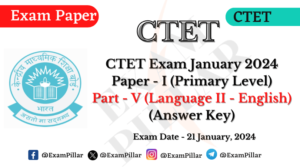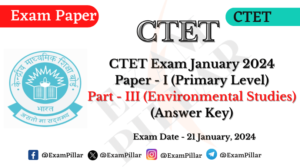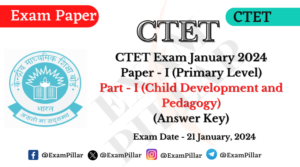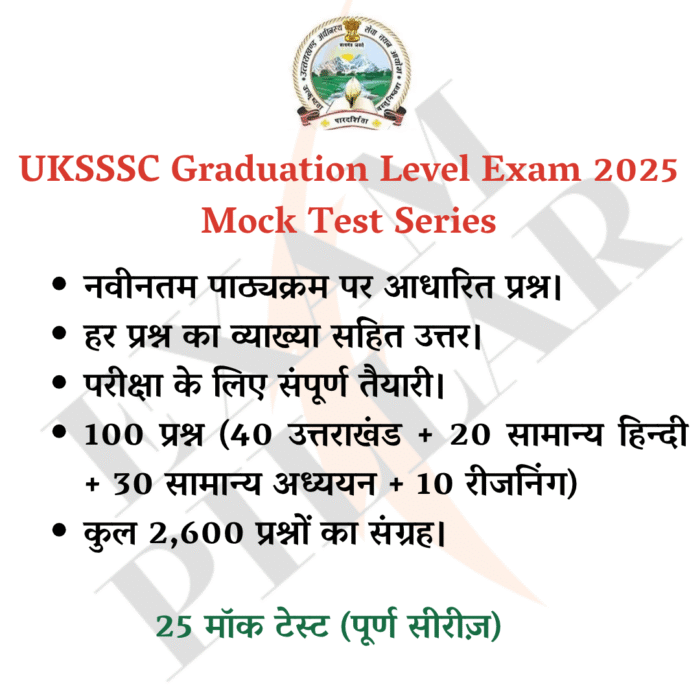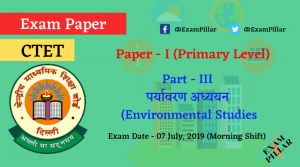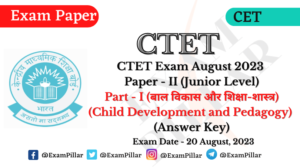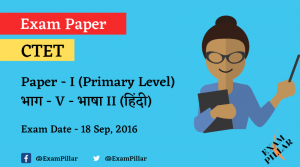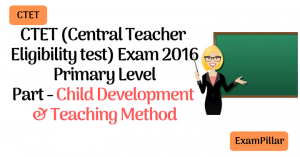Click Here To Read This Paper in Hindi
16. In progressive-education children are seen as
(1) active explorers
(2) blank slates
(3) miniature adults
(4) passive imitators
Show Answer/Hide
17. The period that initiates the transition to adulthood is –
(1) Pre-operational period
(2) End childhood
(3) Adolescence
(4) Middle childhood
Show Answer/Hide
18. According to Jean Piaget, children –
(1) can be conditioned to behave in particular ways by carefully controlled stimulus – response associations.
(2) can be taught to behave and learn in specific manner using principles of rewards and punishment.
(3) actively construct knowledge as they manipulate and explore the world.
(4) learn by observing others following a process of observational learning.
Show Answer/Hide
19. There are individual variations in the rate of motor development, yet the sequence of motor development is from _______ to ______ .
(1) gross motor development; fine motor development
(2) fine motor development; gross motor development
(3) cephalocaudal; proximodistal
(4) proximodistal, cephalocaudal
Show Answer/Hide
20. Associating toys, articles of clothing, household items, occupations and colours with specific sex, is a demonstration of –
(1) gender theory
(2) gender relevance
(3) evolved gender identity
(4) gender stereotyping
Show Answer/Hide
21. In an elementary classroom it is important to the experiences that a child brings with her.
(1) ignore
(2) build on
(3) deny
(4) neglect
Show Answer/Hide
22. A child argues that Heinz shouldn’t steal the drug (medicine that can save his wife) because he will be caught and sent to jail if he does so. According to Kohlberg, which stage of moral understanding does the child fall under?
(1) The punishment and obedience orientation.
(2) The universal ethical principle orientation.
(3) The instrumental purpose orientation
(4) The social-order maintaining orientation
Show Answer/Hide
23. Lev Vygotsky refers to the verbal dialogues that children have with themselves as –
(1) distorted speech
(2) problematic speech
(3) egocentric speech
(4) private speech
Show Answer/Hide
24. ______ is the philosophy that all children have a right to get equal education in a regular school system.
(1) Special education
(2) Multi-cultural education
(3) Inclusion
(4) Mainstreaming
Show Answer/Hide
25. A teacher should
(1) ignore cultural differences and diversity amongst students.
(2) communicate that she respects and values all cultures in the classroom.
(3) maximize comparisons amongst students.
(4) promote students belonging to certain cultures. . .
Show Answer/Hide
26. Which of the following constructs does Right to Education Act, 2009 advocate ?
(1) Segregatione
(2) Mainstreaming
(3) Integrated education
(4) Inclusive education
Show Answer/Hide
27. Children should _____ questions in the class.
(1) not be allowed to ask
(2) be stopped from asking
(3) be encouraged to ask
(4) be discouraged to ask
Show Answer/Hide
28. Which of the following is NOT a key process through which meaningful learning occurs ?
(1) Instruction and direction
(2) Exploration and interaction
(3) Memorization and recall
(4) Repetition and practice
Show Answer/Hide
29. Which of the following represents the correct matching of children in column-A with their primary characteristic in column-B ?
| Column-A | Column-B |
| i. Gifted | a. Lacks reading fluency |
| ii. Learning disabled | b. Can think of original solutions |
| iii. Creative | c. Tendency to get distracted easily |
| iv. Attention Deficit Hyperactivity Disorder (ADHD) | d. Ability to learn quickly and independency |
. i, ii, iii, iv
(1) d, c, a, b
(2) a, b, d, c
(3) d, c, b, a
(4) d, a, b, c
Show Answer/Hide
30. Children learn effectively when –
(1) they copy answers written by the teacher on the blackboard.
(2) they actively participate different activities and tasks.
(3) the teacher fully everything that happens in the controls class including the children.
(4) they memorise facts given in the textbook.
Show Answer/Hide
- CTET 2019 Paper – I – Part – II – गणित (Mathematics)
- CTET 2019 Paper – I – Part – III – पर्यावरण अध्ययन (Environmental Studies)
| Read Also : |
|---|


